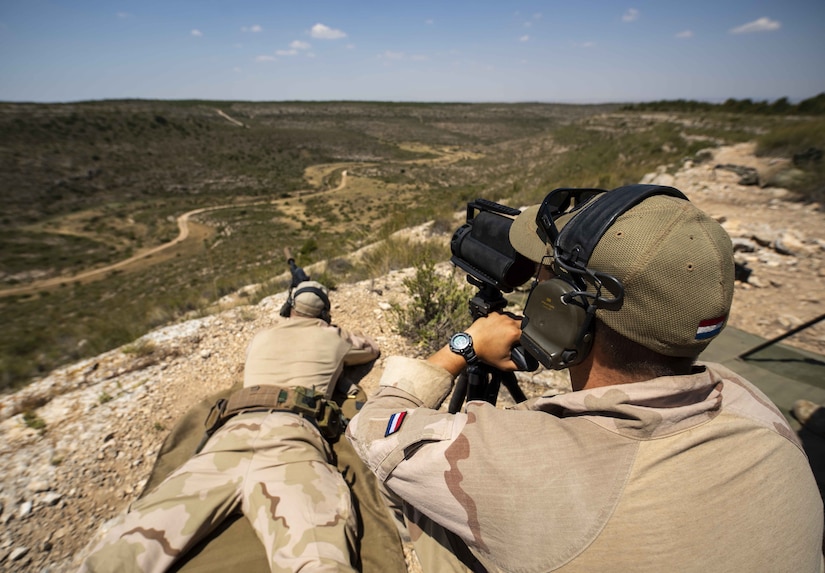By Army 1st Lt. Benjamin Haulenbeek, U.S. Special Operations
Command Europe
ALBACETE, Spain -- Snipers from Belgium, Italy, the
Netherlands, Norway and Spain attended the International Special Training
Centre’s Desert Sniper Course last month at the Chinchilla Training Area here.
ISTC is a multinational education and training facility for
tactical-level, advanced and specialized training of multinational special
operations forces and similar units, employing the skills of multinational
instructors and subject matter experts.
The Desert Sniper Course is designed to teach experienced
sniper teams skills for operating in desert environments.
“The students that come to this course all have prior
experience,” said a U.S. Army sniper instructor assigned to ISTC. “We help them
build upon what they already know in order to operate in a desert environment.
During the course we teach them concealment techniques and stalking in desert
terrain. This culminates with students conducting missions where they put their
newly learned skills to the test.”
Because of the nature of their work, the snipers’ names are
not used in this article.
Snipers operating in dry or barren environments must take
extra measures to alleviate the effects of heat that can increase the
challenges when constructing concealed positions, known as hide sites.
Unique Camouflage Requirements
“The biggest challenges snipers will encounter during most
desert operations are the unique camouflage requirements, the heat and exposure
to the harsh environment, and having to engage targets at extreme distances,”
the U.S. instructor said.
The first week of the course gave students the opportunity
to acclimate to the environment.
“We ease into operations by conducting ranges where they
collect data for their rifles and learn about environmental considerations such
as heat mirage and strong winds that affect their ability to make long shots,”
the instructor said. “From there, they practice building hide sites and
stalking to refine the skills they’ll need when conducting missions during week
two.”
Sniper team collects ballistic data.
ISTC’s ability to conduct and train across various countries
in Europe provides NATO and partner nations the opportunity to participate in
cost effective training close to home.
“Spain is the perfect place to conduct this type of
training,” a Spanish sniper instructor. “We have the right kind of climate and
terrain to replicate the conditions that a sniper team will encounter when
deployed in a desert. We also have the space needed to conduct ranges for long-distance
shooting, something that is not easy to find in Europe.”
With snipers from multiple countries, the opportunity to
share knowledge helped all those who attended.
“One of the greatest benefits is that our courses bring
together knowledge and resources from so many places,” the ISTC operations and
plans officer said. “By combining efforts and sharing knowledge, the nations
that participate in course like Desert Sniper are able to reinforce alliances
and strengthen their capability to work together.”

No comments:
Post a Comment